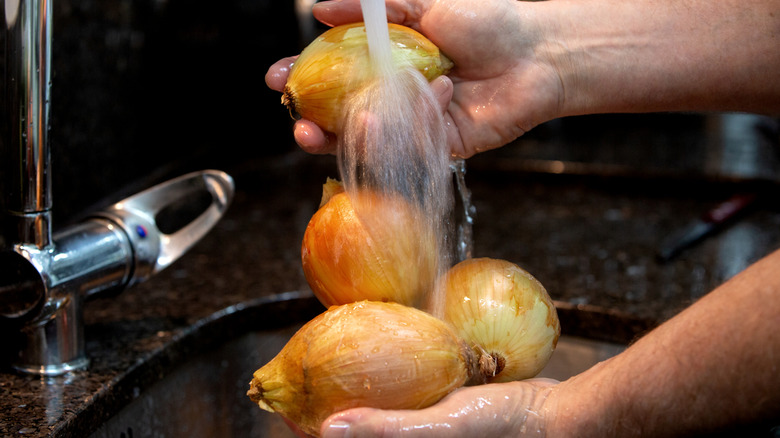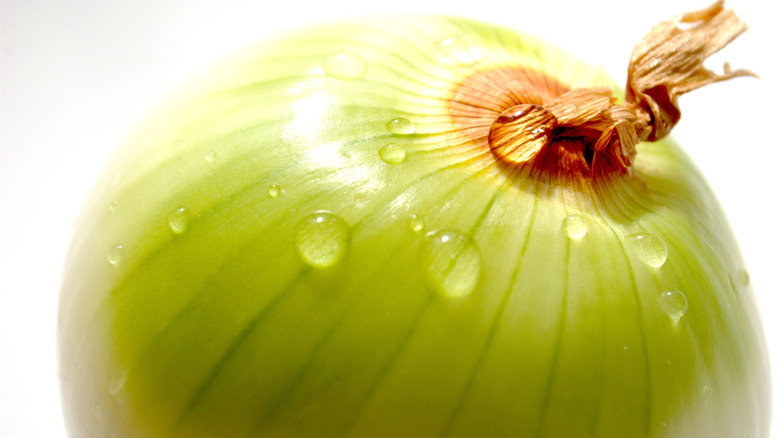Wait, Should We Be Washing Onions?
Before you grab an onion to peel and chop up for your next recipe, should you wash it first? The short answer is — it depends on who you ask.
Some food scientists and other experts say you don't need to wash onions because the outer skin functions like a peel and is removed before use, similar to a banana, therefore safeguarding the interior layers from any dirt and bacteria that may have been on the outside. However, the FDA advises to thoroughly wash all fruits and vegetables before use, even including those with a skin that is going to be disposed of and not eaten.
Though the dense inner layers of an onion might seem like adequate protection against outer contamination, the acts of peeling, cutting, and otherwise handling an unwashed bulb can cause contaminants like dirt, bacteria, insects, and pesticides to transfer from the outer layer to the inside of the vegetable. Contaminants can also be present due to contact with animals during growth, as well as handling by harvesters and other workers who have improper hygiene habits.
So, the safest course against foodborne illness is, yes, washing onions before use. In fact, failure to properly wash onions and other produce items is one of the meal prep mistakes that can lead to food poisoning.
How to properly wash onions
Simply washing with water is the proper course (per the FDA). Using soap, any types of detergent, or commercial washes advertised as appropriate cleaning agents is not recommended, as porous fruits and veggies can absorb the contents of these products and cause illness. The FDA further advises drying off the produce with a paper towel or clean cloth after washing as an additional safeguard against bacteria that may still linger on the exterior or on the material and therefore spread by wiping the produce.
Other precautions can additionally help ensure you're eating onions that are safe for consumption. These include avoiding some of the common mistakes people make with onions, like using old or moldy bulbs; placing leftover onions uncovered in the refrigerator, which accelerates spoilage; and storing the vegetable improperly. One great tip: Use nylon stockings as a clever way to store onions so they last for many months without spoiling.


